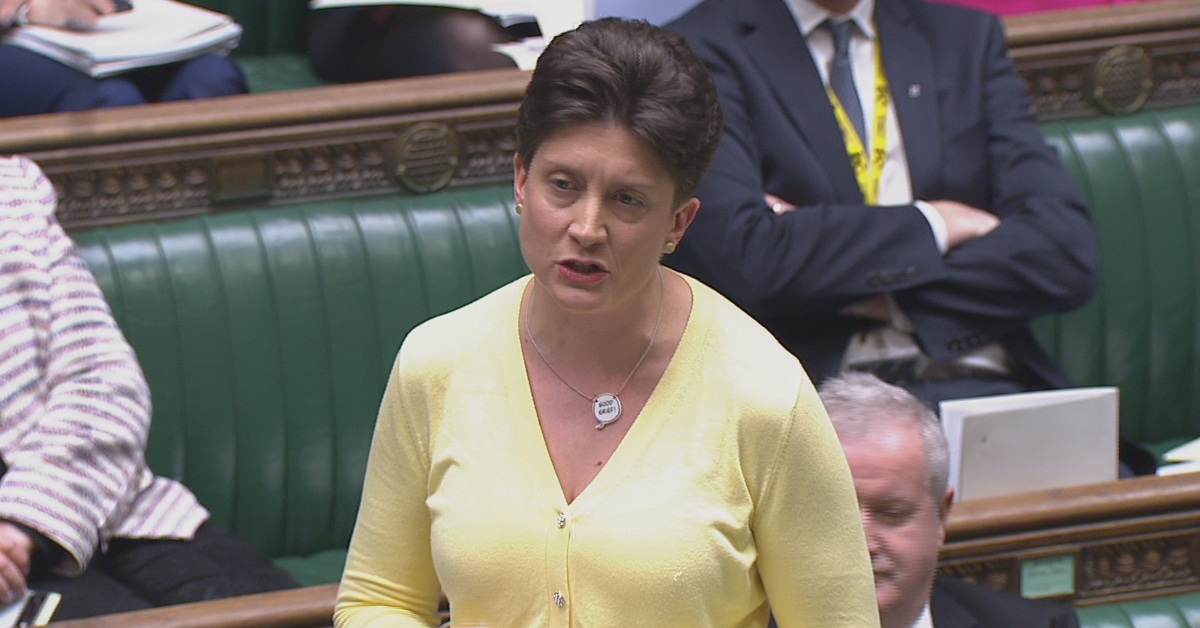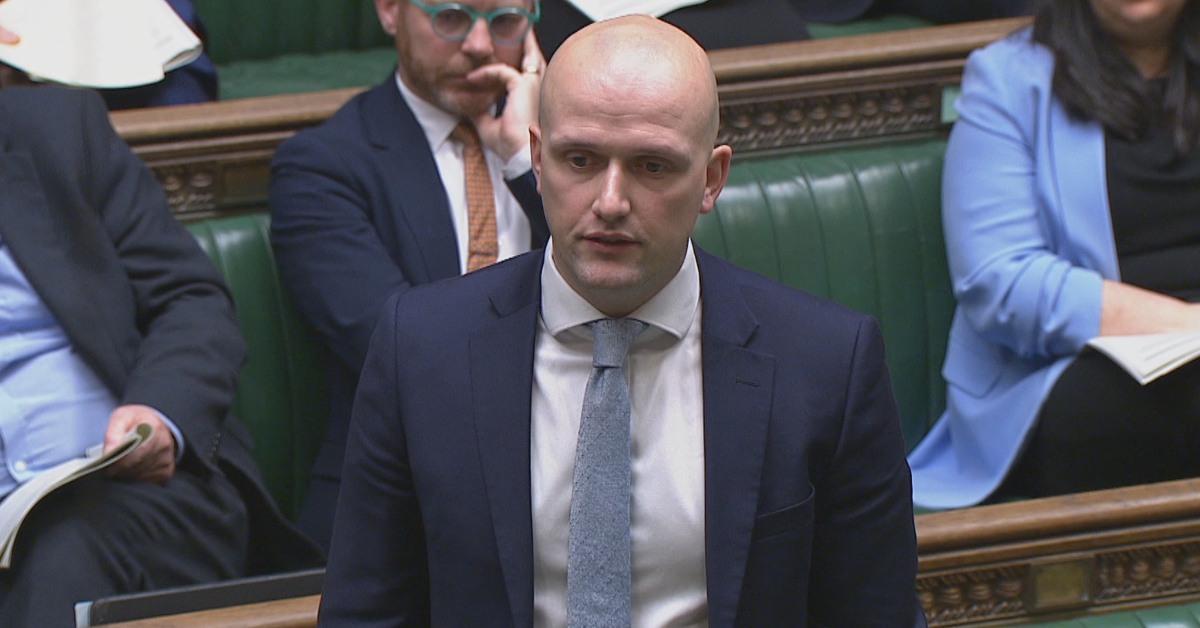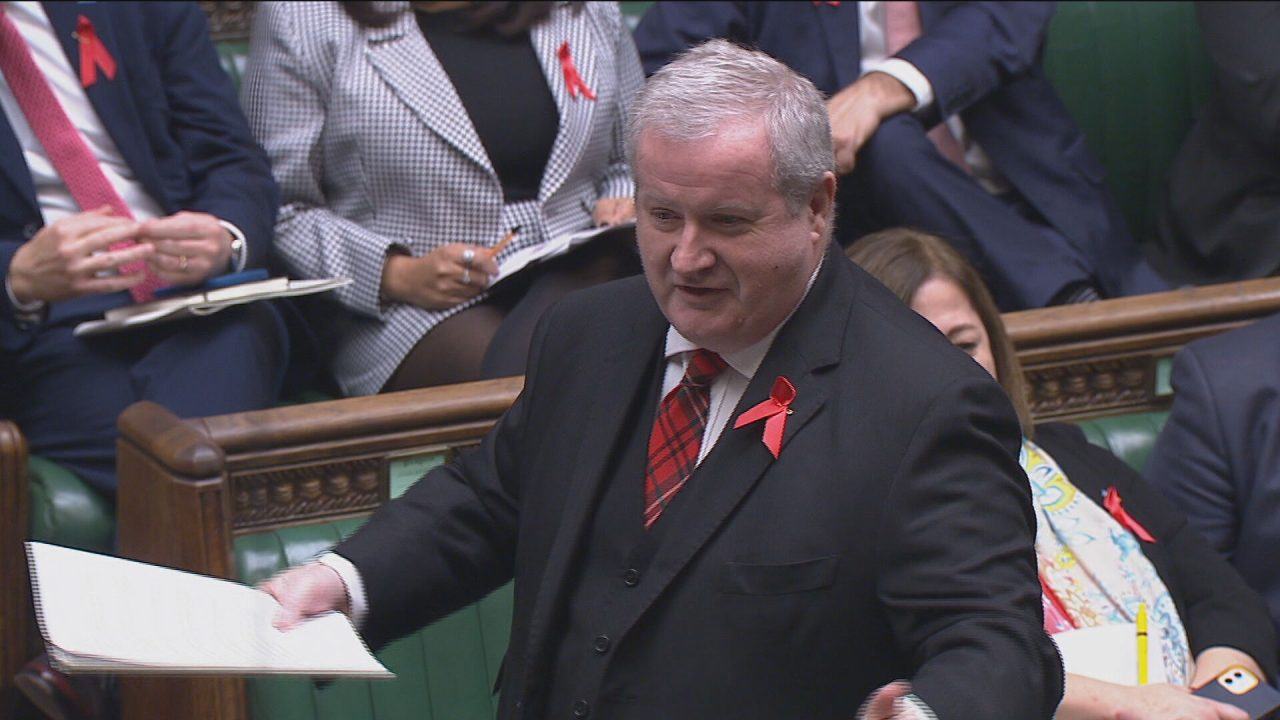When Prime Minister’s Questions takes place at noon on Wednesday, a new party leader will question Rishi Sunak on behalf of the third largest party in the House of Commons, the SNP.
The contest to succeed the deposed Ian Blackford looks likely to be a choice between the personable MP for Glasgow Central Alison Thewliss and the man seen as the party’s rising star, the Aberdeen South MP Stephen Flynn.
Flynn is something of the hokey-cokey candidate. First, he was about to challenge Blackford, then he wasn’t, and now he aims to succeed at a time when the numbers in the group pledging support for the Ross, Skye and Lochaber MP started to haemorrhage.
These are a fractious bunch of MPs. There has been friction over Blackford’s leadership style and his perceived mishandling of personnel matters. There are malcontents among the ranks, their chagrin born of a belief that their talents are not being rewarded.
 STV News
STV NewsAnd there will be unease over more genuine concerns that the party more generally is not prosecuting the case for independence with sufficient vigour, believing the party leader and First Minister Nicola Sturgeon has been too passive and way too reactive to events.
To a large extent, these grumbles are par for the course in politics. They are no more acute than the near permanent state of disunity in the Conservative Party that has led MPs to largely install three prime ministers and then get rid of them.
The ‘trouble at mill’ in nationalist ranks is also no more fractious than the internal tensions in the parliamentary Labour Party during Jeremy Corbyn’s leadership.
I do think, and have always thought, that the Westminster environment lends itself to simmering discontent taking hold in the formulation of plots. The culture is more conspiratorial than Holyrood and the plotting is invariably boozier.
A simple question. Would some of these MPs agitating for change be quite so querulous if they were at Holyrood? I doubt it.
Discipline among SNP MSPs may not be what it once was, but by comparison to the Westminster group, they still march in tune.
If the Thewliss-Flynn contest is not one of competing ideas, then it is no more than a popularity event and begs a more fundamental question – does it matter who leads the SNP at Westminster?
Now those who obsess about such matters will insist it does. The style of leadership could change, the voice leading the charge in the Commons will be fresher and the presentational style different from the chippy offerings of Blackford.
Now, all of this may be true, but there are a couple of points to make that overshadows all of this.
First, the strategy for independence (it isn’t a strategy, but that’s another issue) has been decided by Sturgeon. Whatever Messrs Thewliss and Flynn think is, with respect, largely irrelevant.
Second, they will be left to argue for the ‘general election as de-facto referendum’ line. They are not masters of the ‘strategy’, they are its servants.
When you look at the history of the SNP, great debates have accompanied its broad approach to self-government.
This was true when it decided its stance in the 1970s over the issue of the Scottish Assembly bills piloted by the then-Labour government.
It was true on whether they should participate in the constitutional convention in 1989 and then over support for the 1997 devolution revolution of the Blair government.
And yet, since 2014 there has been no debate. If there has, this observer must have been asleep.
What should have been the most carefully considered debate in the party’s history simply didn’t happen.
Instead, the pre-eminent position of Nicola Sturgeon meant that the overwhelming majority of SNP members were quite happy for the leader to deliver the way forward with new tablets of stone.
 STV News
STV NewsUnfortunately for them, that ‘strategy’ appeared to be a mix of playing for time before embarking on a failed attempt to get the Supreme Court to assert that the Scottish Parliament’s sovereignty trumped Westminster.
And now with no more road left, the First Minister seeks yet another mandate having already secured repeated electoral victories. The new ‘strategy’ is just like the old one. Win an election and demand a plebiscite. It has failed in the past, so why would it work in 2024?
It matters to SNP MPs who leads them, but it won’t change what the party says about independence or the route to getting there.
Holyrood is constitutionally subordinate to Westminster, but in the matter of the leadership of the SNP, the Westminster leader is subordinate to the First Minister.
Outwith the Westminster village, the new leader is only relevant if they have a bold new direction for the independence movement. They don’t. For that reason, it doesn’t matter who emerges victorious tomorrow night.
Follow STV News on WhatsApp
Scan the QR code on your mobile device for all the latest news from around the country


 STV News
STV News
























